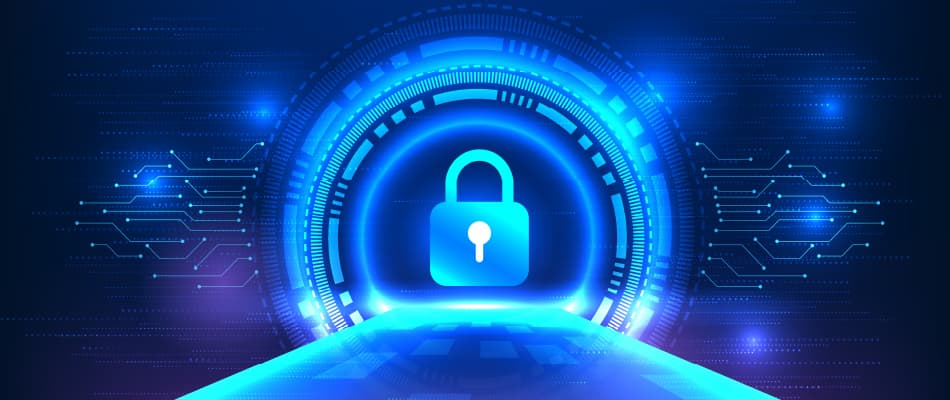Cyber Security Engineer Interview Questions: Top 40 Questions
Do you have a strong interest in technology and a desire to protect against cyber threats? Becoming a cyber security engineer integrates your technical talents with the purpose of preserving the digital environment. You will be on the front lines, developing and maintaining robust security systems to thwart hostile attacks. By routinely monitoring and updating these systems, you can assure the security and integrity of critical data. This career needs you to stay up to date on the latest security developments, which gives you a sense of purpose as you help protect digital assets.
You will be in charge of designing, deploying, and maintaining security solutions that protect against cyber attacks. Your knowledge will be extremely useful in identifying vulnerabilities, responding to security incidents, and ensuring the integrity of critical data. In this article, you will learn the top 40 Cyber Security Engineer Interview Questions, cybersecurity engineer fields & more.
Cyber security Engineer Interview Questions with Answers
1) What motivated you to pursue a career in cyber security?
Answer: Your passion for this field drives your interest in protecting digital assets and preventing cyber attacks. It can be challenging to stay ahead of cybercriminals, but it is exciting and rewarding. You enjoy learning about new technologies and applying them to enhance security. This career allows you to make a tangible impact on digital safety.
2) Can you explain the concept of network security?
Answer: Network security involves protecting a computer network from unauthorised access, misuse, or attacks. You achieve this by implementing measures like firewalls, intrusion detection systems, and encryption. Regularly monitoring and updating these measures ensure the network’s integrity and confidentiality. Your goal is to maintain a secure and reliable network environment.
3) Explain the term encryption and why is it important?
Answer: Encryption is the process of converting data into a coded format to prevent unauthorised access. It is crucial because it ensures that sensitive information remains confidential, even if intercepted. You use encryption to protect data during transmission and storage. By maintaining data integrity, encryption helps build trust and security.
4) How do you stay updated on the latest cybersecurity threats and trends?
Answer: To get regular updates, you can read industry blogs, attend webinars, and participate in cyber security forums. Subscribing to newsletters and following experts on social media keeps you informed. Continuous learning through courses and certifications is essential. Networking with other professionals also provides valuable insights into emerging threats and solutions.
5) What is a firewall, and how does it work?
Answer: A firewall is a security device that monitors and controls incoming and outgoing network traffic based on predetermined rules. You use it to create a barrier between trusted internal networks and untrusted external networks. Firewalls prevent unauthorised access and block malicious traffic. They are essential for protecting network infrastructure.
6) Can you describe a phishing attack?
Answer: Phishing is a cyber-attack where attackers masquerade as legitimate entities to trick you into revealing sensitive information. You may receive fake emails or messages that appear genuine, urging you to click on malicious links or provide personal details. Recognising these tactics is crucial to avoid falling victim to phishing. Educating users about these threats is an essential preventive measure.
7) How can you create a strong password?
Answer: Creating a strong password requires a mix of upper- and lower-case letters, numbers, and special characters. It should be at least 12 characters long and avoid easily guessable information like birthdays. Regularly updating passwords and using unique ones for different accounts enhances security. Implementing multi-factor authentication adds an extra layer of protection.
8) What steps would you take if you detected a security breach?
Answer: First, you would contain the breach to prevent further damage. Next, you would identify and assess the extent of the breach, gathering relevant data. You would then work on eradicating the threat and restoring affected systems. Finally, you would analyse the breach to improve security measures and prevent future incidents.
9) How do you handle sensitive data?
Answer: You can simply handle sensitive data with utmost care, ensuring it is encrypted and stored securely. Access to sensitive data is restricted to authorised personnel only. Regular audits and monitoring help detect any unauthorised access or anomalies. You also educate users on best practices for handling sensitive information.
10) What is a vulnerability assessment?
Answer: A vulnerability assessment identifies, quantifies, and prioritises security vulnerabilities in a system. Various tools and techniques can be used to scan for weaknesses. The goal is to address these vulnerabilities before attackers can exploit them. Regular assessments help maintain a robust security posture.
11) Can you explain the concept of multi-factor authentication (MFA)?
Answer: MFA is a security system that requires multiple forms of verification before granting access to an account or system. You can typically use something you know (password), something you have (security token), and something you are (fingerprint) as factors. By adding extra layers of security, MFA significantly reduces the risk of unauthorised access
.
12) What is social engineering, and how can you prevent it?
Answer: Social engineering involves manipulating people into divulging confidential information. You prevent it by educating users about common tactics like phishing, pretexting, and baiting. Encouraging scepticism and verifying the identity of requesters helps. Implementing security protocols and monitoring suspicious activities also mitigate social engineering risks.
13) What is an intrusion detection system (IDS)?
Answer: An IDS monitors network traffic for suspicious activities and potential threats. You use it to identify and respond to security incidents in real time. By analysing patterns and signatures, an IDS can detect anomalies. It complements other security measures by providing an additional layer of protection.
14) How do you manage security updates and patches?
Answer: To manage security updates & patches, you need to regularly review and apply security updates and patches to systems and software. Automating the update process ensures timely application. Testing updates in a controlled environment helps identify potential issues. Keeping systems up-to-date minimises vulnerabilities and enhances overall security.
15) What is a security policy, and why is it important?
Answer: A security policy is a set of rules and guidelines for protecting an organisation’s information and assets. You use it to define acceptable behaviour and procedures for employees. It helps ensure consistency in security practices and compliance with regulations. A well-defined policy reduces risks and enhances the organisation’s security posture.
16) What is Shoulder Surfing?
Answer: Shoulder surfing is a method of data theft in which a bad actor points over a target’s shoulder to obtain personal information such as passwords and PIN numbers, which can then be used to launch a cyberattack. Shoulder surfing, like phishing, is a social engineering tactic, which means it belongs to a type of information security assault that uses psychological manipulation to collect sensitive information or persuade victims to do actions that are detrimental to their best interests.
17) How do you approach risk assessment in cyber security?
Answer: To approach risk assessment, you need to identify potential threats and vulnerabilities to the organisation’s assets. Evaluating the likelihood and impact of these risks helps prioritise mitigation efforts. Implementing controls and monitoring their effectiveness reduces risk. Regularly reviewing and updating risk assessments ensures they remain relevant and effective.
18) Can you explain the difference between symmetric and asymmetric encryption?
Answer: Symmetric encryption uses the same key for both encryption and decryption, making it fast but less secure. You need to share the key securely between parties. Asymmetric encryption uses a pair of keys (public and private) for encryption and decryption. It is more secure but slower. You use each method based on the specific security requirements.
19) What is a security incident, and how do you handle it?
Answer: A security incident is an event that compromises the integrity, confidentiality, or availability of information. You handle it by promptly detecting and containing the incident. Investigating the cause and extent of the damage helps in remediation. Learning from the incident and improving security measures prevents future occurrences.
20) How do you educate employees about cyber security?
Answer: To educate employees about cyber security, you can develop and deliver training programmes on cyber security best practices. Real-world examples and interactive sessions make the training engaging. Regular updates and reminders keep security at the forefront of my mind. Encouraging a culture of security awareness and vigilance among employees is essential.
21) What is a denial-of-service (DoS) attack?
Answer: A DoS attack aims to make a network or service unavailable by overwhelming it with traffic. You mitigate it by implementing network security measures like firewalls and intrusion prevention systems. Regular monitoring and traffic analysis help detect and respond to such attacks. Ensuring redundancy and scalability in systems reduces the impact.
22) How do you secure a wireless network?
Answer: You can use strong encryption protocols like WPA3 to secure a wireless network. Changing default settings, such as the SSID and administrator passwords, enhances security. Implementing network segmentation and using strong, unique passwords for access points helps. Regularly updating firmware and monitoring for unauthorised access maintains security.
23) What is the role of a cyber security engineer?
Answer: As a cyber security engineer, you design, implement, and maintain security systems to protect an organisation’s digital assets. You identify vulnerabilities, respond to security incidents, and ensure compliance with security policies. Analysing data and conducting risk assessments helps improve security measures. Your goal is to prevent breaches and ensure the safety of digital information.
24) How do you handle confidential information?
Answer: Confidential information should be handled by following strict security protocols. Encrypting data, using secure storage methods, and restricting access are key practices. Regularly auditing and monitoring for unauthorised access helps maintain confidentiality. Educating users on the importance of protecting sensitive information is crucial.
25) What is a security audit?
Answer: A security audit is a systematic evaluation of an organisation’s information systems and security measures. You assess compliance with policies, identify vulnerabilities, and recommend improvements. Regular audits ensure ongoing adherence to security standards. They provide valuable insights into the effectiveness of security controls.
26) How do you protect against malware?
Answer: To protect against malware, use antivirus software and regularly update it. Educating users about safe browsing practices and avoiding suspicious downloads is crucial. Implementing email filtering and network security measures helps detect and block malware. Regularly backing up data ensures recovery in case of an infection.
27) What is the importance of data backup?
Answer: Data backup ensures that you can recover important information in case of data loss or corruption. Regularly creating and testing backups minimises the impact of cyber attacks or system failures. Storing backups in secure, offsite locations enhances data protection. A robust backup strategy is essential for business continuity.
28) How do you handle a ransomware attack?
Answer: You can contain the attack by isolating affected systems to prevent further spread. Restoring data from backups ensures minimal data loss. Reporting the incident to relevant authorities helps investigators and responders. Educating users about ransomware prevention and maintaining strong security measures reduces future risks.
29) What is a zero-day vulnerability?
Answer: A zero-day vulnerability is a security flaw that attackers exploit before the software vendor releases a fix. You protect against such vulnerabilities by using advanced threat detection tools. Regularly updating software and applying patches promptly helps. Monitoring for suspicious activities and implementing strong security measures minimises risk.
30) How do you conduct a penetration test?
Answer: You can simulate an attack on the system to identify vulnerabilities. Using various tools and techniques, you attempt to exploit weaknesses. Documenting the findings and recommending corrective actions helps improve security. Regular penetration testing ensures that security measures remain effective.
31) What is the importance of cyber security in today’s digital world?
Answer: Cybersecurity is crucial for protecting sensitive information and maintaining trust. Implementing strong security measures prevents financial losses, data breaches, and damage to reputation. With increasing cyber threats, staying vigilant and proactive is essential. Ensuring the safety of digital assets is fundamental to business operations.
32) How do you handle a suspected insider threat?
Answer: You monitor for unusual activities and investigate any suspicious behaviour. Implementing strict access controls and regularly auditing user actions helps detect insider threats. Educating employees about security policies and encouraging reporting of suspicious activities is important. Taking appropriate disciplinary actions maintains a secure environment.
33) What is a virtual private network (VPN)?
Answer: A VPN encrypts your internet connection, providing a secure and private way to access the internet. You use it to protect your data from eavesdropping and ensure secure communication. VPNs are essential for remote access to corporate networks and for maintaining privacy. Regularly updating and configuring VPNs correctly enhances security.
34) How do you ensure the security of cloud services?
Answer: To ensure the security of cloud services, you need to implement strong access controls and encryption for data stored in the cloud. Regularly monitoring and auditing cloud activities helps detect and respond to security incidents. Educating users about secure cloud practices and updating security measures ensures protection. Collaborating with cloud service providers to maintain compliance is crucial.
35) What is a botnet?
Answer: A botnet is a network of infected devices controlled by a malicious actor. You combat botnets by using anti-malware tools and regularly updating systems. Monitoring network traffic for unusual activities helps detect botnet infections. Educating users about safe online practices reduces the risk of becoming part of a botnet.
36) How do you protect against SQL injection attacks?
Answer: To protect against SQL injection attacks, you must validate and sanitise user inputs to prevent malicious SQL queries. Using prepared statements and parameterised queries enhances security. Regularly auditing and testing for vulnerabilities helps identify potential risks. Educating developers about secure coding practices reduces the likelihood of SQL injection attacks.
37) What is the role of encryption in data security?
Answer: Encryption protects data by converting it into an unreadable format, accessible only with the decryption key. You use it to ensure confidentiality and integrity of sensitive information. Implementing strong encryption standards and regularly updating encryption methods enhances security. Encryption is essential for protecting data during transmission and storage.
38) How do you handle a denial-of-service attack?
Answer: You can mitigate a DoS attack by using network security measures like firewalls and intrusion prevention systems. Regularly monitoring and analysing traffic helps detect and respond to such attacks. Implementing redundancy and scalability in systems reduces the impact. Collaborating with service providers for additional support is crucial.
39) What is a security breach, and how do you prevent it?
Answer: A security breach is an incident in which unauthorised access to information occurs. You can prevent it by implementing strong security measures, such as firewalls, encryption, and access controls. Regularly updating systems and educating users about security practices reduces the risk. Conducting regular security audits and vulnerability assessments ensures ongoing protection.
40) What is the importance of a cybersecurity Experience?
Answer: A cyber security experience provides hands-on experience and practical knowledge in protecting digital assets. You gain insights into real-world security challenges and learn from experienced professionals. It helps build a strong foundation for a career in cyber security. Having a good number of experiences also offers networking opportunities and can lead to up to date knowledge in this field.
In-Demand Cyber Security Engineer Job Profile
The demand for cyber security engineers has surged in recent years due to the increasing number and complexity of cyber threats. Companies across all sectors, from finance to healthcare, are seeking skilled professionals to safeguard their digital assets.
As you learned about the Cybersecurity engineer interview questions, you should also know that Cybersecurity engineers are essential for designing, implementing, and maintaining robust security systems that protect against data breaches and cyber-attacks. This role offers a dynamic and rewarding career path, providing ample opportunities for growth and specialisation.
Some of the Benefits of a Cyber Security Engineer:
- High Job Demand: The persistent threat of cyber attacks ensures a steady demand for cyber security professionals.
- Job Security: With cyber threats continually evolving, the need for cyber security professionals remains constant, ensuring job stability.
- Competitive Salaries: Cyber security roles often offer attractive compensation packages due to the required specialised skills.
- Career Growth: The field offers numerous opportunities for advancement and specialisation in various domains of cyber security.
- Impactful Work: Protecting sensitive information and systems contributes to digital environments’ overall safety and security.
Why Join Digital Regenesys Cyber Security Course?
Digital Regenesys is a renowned institution committed to providing top-tier education in cyber security. With a strong focus on practical learning and industry relevance, Digital Regenesys equips students with the skills and knowledge needed to excel in the cybersecurity field. Their Cybersecurity course is designed to address the latest trends and threats, preparing students for successful careers in protecting digital assets. The experienced faculty and comprehensive curriculum ensure that you gain both theoretical knowledge and hands-on experience.
Benefits of the Cyber Security Course by Digital Regenesys:
- Expert Faculty
- Practical Learning
- Industry-Relevant Curriculum
- Career Support
- Flexible Learning
- International Recognised Certification
Therefore, Preparing for a cybersecurity engineer interview involves mastering a range of topics, from technical skills to situational problem-solving. Reviewing these 40 Cyber Security engineer interview questions will help you showcase your expertise and ensure you’re well-equipped to impress potential employers. To improve your cybersecurity skills, you can also join the Cybersecurity course offered by Digital Regenesys.

Cyber security Engineer Interview Questions with Answers – FAQs
What skills are essential for a cyber security engineer?
Essential skills include a strong understanding of network security, knowledge of encryption methods, proficiency with security tools, and a solid foundation in IT fundamentals. Analytical thinking and problem-solving abilities are also crucial for identifying and mitigating security threats.
How can I prepare for a cybersecurity engineering interview?
Research the company, review common cyber security concepts, and practice problem-solving scenarios. Familiarise yourself with the specific tools and technologies used by the company, and prepare to discuss your experience and knowledge in those areas. Mock interviews and technical question reviews can boost your confidence.
What tasks will I be expected to perform as a cyber security engineer?
As a cybersecurity engineer, you need tol design, implement, and maintain security systems to protect an organisation’s digital assets. Tasks include monitoring network traffic, identifying vulnerabilities, responding to security incidents, and ensuring compliance with security policies.
Can I pursue a career in cybersecurity engineering without prior experience?
Yes, many entry-level positions and internships are designed for students or recent graduates with limited experience. However, having a basic understanding of cyber security principles, relevant coursework, and practical knowledge can be advantageous. Gaining certifications and hands-on experience through internships can also help.
What are the benefits of a career in cybersecurity engineering?
Some of the cybersecurity engineering career benefits include high job demand, competitive salaries, ample opportunities for career growth, job security, and the ability to impact digital safety significantly. The field is dynamic and constantly evolving, providing continuous learning opportunities.
How should I prepare for a cybersecurity job interview?
To prepare for a cybersecurity job interview, you need to research the company’s cybersecurity practices, review the specific job description, brush up on your technical skills, and practise common interview questions.





